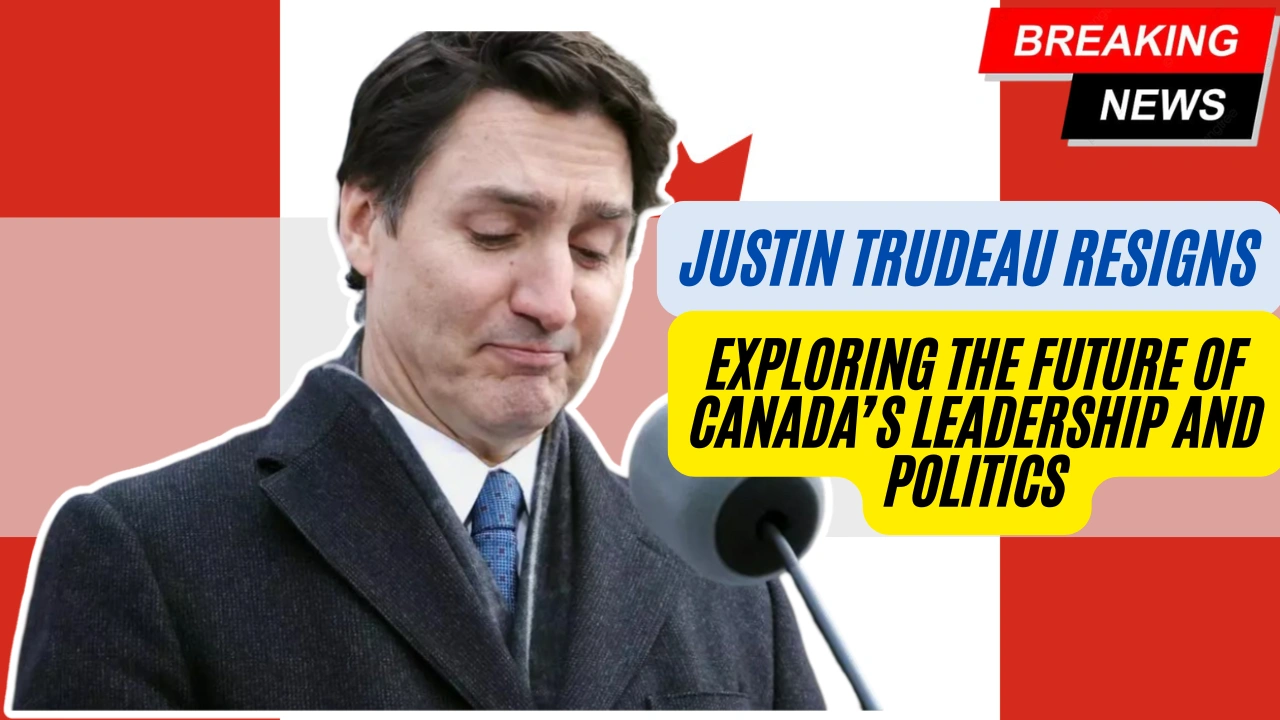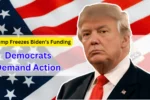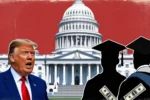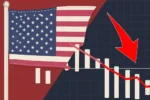Justin Trudeau Resigns: In a momentous shift, Justin Trudeau has announced his resignation as Prime Minister and leader of the Liberal Party after nearly a decade in office. His departure has sent ripples through the political landscape, with both his party and opposition parties now preparing for a new chapter.
This pivotal moment comes after rising pressure within the Liberal Party, as well as increasing public frustration driven by the cost-of-living crisis, disputes over economic policies, and disagreements on handling external threats like the looming U.S. tariffs under Donald Trump’s administration. In his resignation statement, Trudeau explained that his decision was spurred by ongoing internal party struggles: “I cannot be the best option if I’m fighting internal battles.”
What’s Next for the Liberal Party?
1. Leadership Selection Process
The Liberal Party now faces the critical task of selecting a new leader. Party President Sachit Mehra has been entrusted with overseeing the leadership contest, which will unfold according to the party’s constitutional guidelines. Here’s what we can expect moving forward:
- Timeline: The new leader must be elected by March 24, 2025.
- Process: A nationwide leadership race will take place. Candidates will announce their intentions, and Liberal Party members will cast their votes to select their next leader.
2. Trudeau’s Interim Role
Until the new leader is chosen, Justin Trudeau will remain in office as Prime Minister. Trudeau has requested Parliament’s suspension until March 2025 to allow the party to reorganize and focus on the leadership race.
3. Potential Candidates
Several individuals are already emerging as potential successors to Trudeau. Some of the prominent names include:
| Potential Candidate | Current Role | Strengths |
|---|---|---|
| Chrystia Freeland | Former Deputy Prime Minister and Finance Minister | Well-known, experienced in economic policy |
| Anita Anand | Transport Minister | Strong crisis management skills |
| François-Philippe Champagne | Minister of Innovation, Science, and Industry | Expertise in economic and technological issues |
| Mark Carney | Former Bank of England Governor | Esteemed economist with international recognition |
| Mélanie Joly | Minister of Foreign Affairs | Skilled in diplomacy and international relations |
The Role of Opposition Parties
As the Liberal Party grapples with leadership changes, opposition parties like the Conservative Party, Bloc Québécois, and the New Democratic Party (NDP) are ready to seize the moment. One of their primary strategies includes introducing a non-confidence vote once Parliament reconvenes.
Impact of a Non-Confidence Vote
If the opposition manages to pass a non-confidence vote, it could trigger an early federal election, pushing up the date from the original October 2025. If the Liberal Party fails to unite around a strong new leader by then, it could spell further instability.
Key Implications for Canada
1. Economic Challenges
Canada is grappling with significant economic issues that will require careful handling from the new leader. These include:
- Rising inflation and housing affordability crises.
- Trade uncertainties due to proposed U.S. tariffs, which could deeply affect Canadian exports.
The next Prime Minister will face the critical challenge of navigating these economic hurdles while maintaining public trust and confidence.
2. Political Stability
With Trudeau’s resignation, the Liberal Party finds itself at a crossroads. It must quickly elect a leader who can restore public confidence and lead the nation through an uncertain future. The opposition, eager to capitalize on this transition period, is poised to challenge the Liberals in the upcoming federal election.
Looking Ahead
The resignation of Justin Trudeau marks a crucial moment for Canada’s political future. As the Liberal Party embarks on the search for its next leader, the opposition prepares to intensify the pressure. With economic instability hanging over the country, the coming months will play a decisive role in shaping Canada’s political landscape.
FAQs
Why did Justin Trudeau resign?
Trudeau resigned due to growing internal conflicts within his party, declining public approval, and mounting economic challenges, particularly in relation to U.S. trade policies.
Who is likely to succeed Trudeau as Liberal Party leader?
Possible candidates include Chrystia Freeland, Anita Anand, François-Philippe Champagne, Mark Carney, and Mélanie Joly.
When will the new Liberal Party leader be selected?
The leadership election will conclude by March 24, 2025, following a nationwide vote among Liberal Party members.



